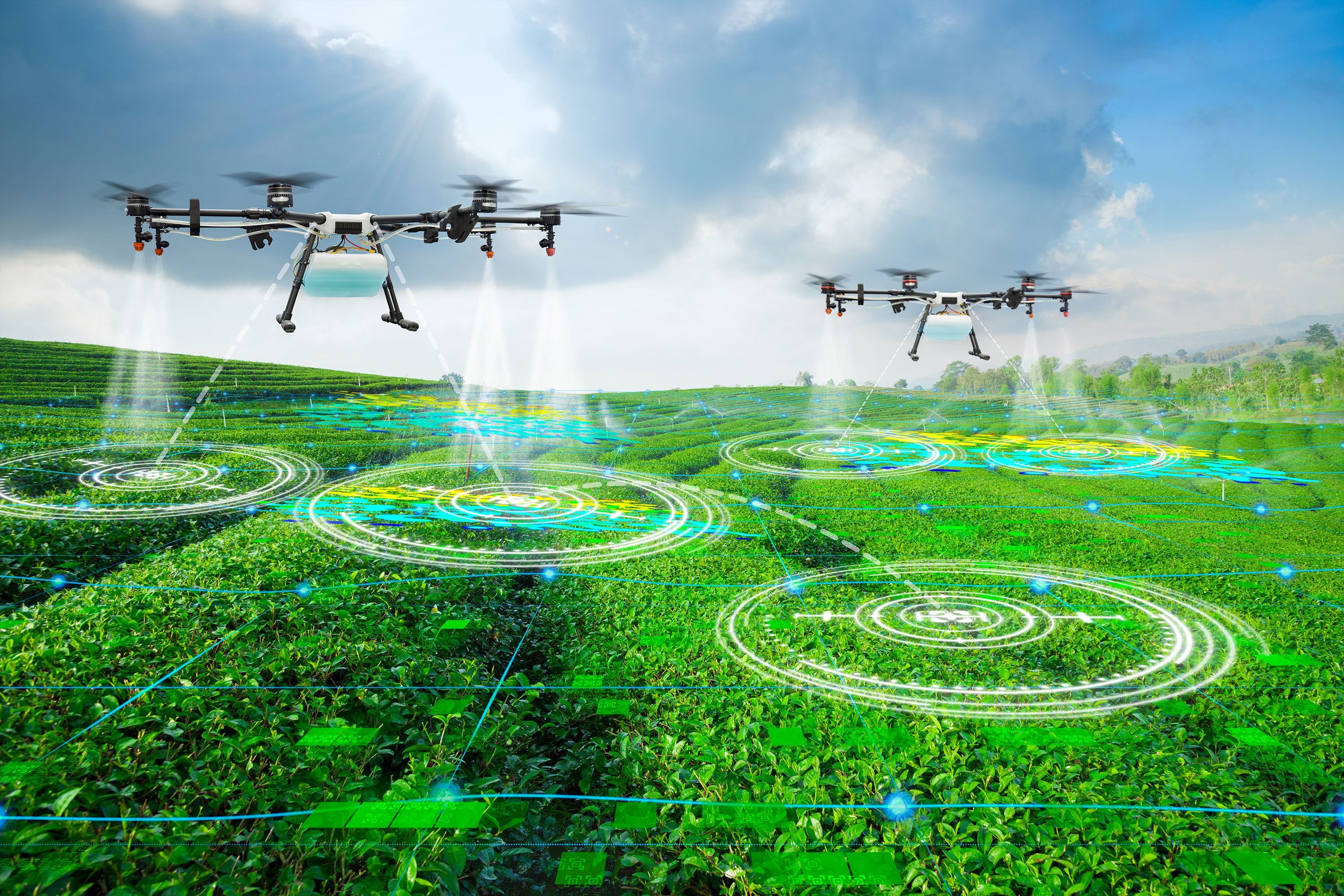Center of Excellence for Emerging Technologies

Background
The agricultural sector has been undergoing a period of rapid transformation, driven by the powerful and interconnected impacts of climate change, demographic transitions and uneven economic growth. Advances in irrigation, fertilization, mechanization, and breeding have helped agriculture keep pace with the explosive growth of the world’s population, but at enormous costs to the environment and human health. Conventional technologies will not solve these ubiquitous challenges. Emerging technologies (ET) that employ data science (DS), machine learning (ML) and artificial intelligence has provided the impetus to transform the overall agricultural system and landscape at multi-scale levels. Emerging technologies (e.g. robotics, drones, sensors) surrounding the Internet of Things (IoT) have propelled agriculture even further through information and communication technologies (ICTs) in the cyber-physical cycle of farm management.
Purpose
Through the 1890 Center Of Excellence In Emerging ‘Internet Of Things’ Technologies (E-Iot) For Smart Agriculture, Delaware State University will lead the charge among the 1890 institutions to strengthen capacity and catalyze exploration of how ET shapes our future. The E-IoT Technologies brings together scientists from sister 1890 institutions: University of Maryland Eastern Shore, Southern University and A&M College, Tuskegee University, Alabama A&M University, South Carolina State University, University of Arkansas at Pine Bluff, North Carolina A&T University, and Florida A&M University. This consortium receives collaborative support from the University of California Davis Artificial Intelligence for Next-Generation Food Systems and the University of Delaware Data Science Institute, which have proven records of excellence in AI and data science, agriculture, outreach, and education.
The Center of Excellence in E-Iot at DSU is made possible through the initial investment of $1.9 million from USDA-NIFA, our federal land-grant partner.
Mission and goals
Through this project, DSU and partners plan to achieve foundational advances in emerging technologies to address pressing challenges in agriculture. The project will tackle three (3) key agricultural challenges: (1) develop multidisciplinary educational programs with increased AI, DS and ML content to produce our next-generation workforce; (2) develop research and workforce training to increase participation of underrepresented and disadvantaged groups; and (3) demonstrate emerging technology solutions to small and minority farmers through our Cooperative Extension division and provide feedback on the incentives and barriers to their adoption. Our collective efforts will promote a next-generation workforce and provide small and minority farmers with the knowledge to increase food production profitability and sustainability and improve agriculture resiliency to climate change.
our impact

